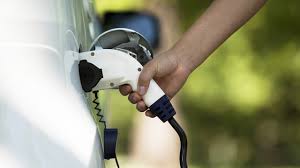-
Prospective Students
-
Faculty and Staff
-
Current Students
-
Alumni and Friends


UNC Charlotte is committed to becoming a regional model of sustainable stewardship, and toward that goal, the University recently earned two Clean Fuel Advanced Technology Project grants totaling $64,000.
The first grant of $12,000 enabled the University to purchase a vehicle battery monitoring system that checks, measures and calculates certain battery parameters to determine the health of the battery. When a problem is detected, it is kept in system memory for later retrieval and reported wirelessly to a connected PC. Motor fleet technicians can proactively analyze and determine if any battery maintenance is needed. The system was purchased from VEBAR, a locally-owned electric fleet battery monitoring company.
According to Chris Facente, automotive supervisor for the Facilities Management Department, the typical cost to replace an electric vehicle battery ranges from $220 to $250. Each vehicle requires eight batteries, which translates into a savings of $1,760 to $2,000 if issues are identified before a vehicle’s battery warranty expires.
“It’s like going to the dentist, where you take care of a cavity when it’s small before it becomes a bigger problem,” explained Mike Lizotte, University sustainability officer. Initially, the VEBAR system will monitor five electric vehicles, but it can be expanded to 20 cars.
The second grant of $52,000 will fund the purchase of 20 on-campus charging stations for electric vehicles. The stations are expected to arrive and be installed in CRI and South Village parking decks this summer.
The stations will be a welcome addition for the growing number of electric vehicle owners who will be able re-charge at no cost during a two-year grant period. This is “in line with the grant’s purpose to encourage alternate fuel vehicles that can reduce air pollution,” stated Lizotte.
UNC Charlotte Center City, in partnership with Nissan North America and Levine Properties, currently has one charging station for commuters and staff.
The N.C. Clean Energy Technology Center of N.C. State University and the state Department of Transportation funded the grants.